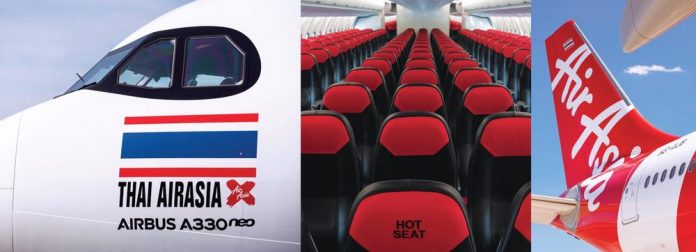Thai AirAsia’s (TAA’s) largest shareholder, Asia Aviation (AAV), has agreed to a 3.15 billion baht loan from a new investor after its attempts to secure funding in the form of soft loans from the government have so far been unsuccessful.
Executive chairman of AAV, Tassapon Bijleveld, was quoted as saying, “We cannot wait for the government to allocate soft loans airlines requested a year ago. We hope the agreement with a new investor will help the airline preserve liquidity and maintain flight operations as usual when the aviation industry bounces back early next year.”
AAV will commence a restructuring of its business and is also expected to launch an IPO for TAA as part of this process. TAA will be listed on the Stock Exchange of Thailand and will replace the holding company AAV. A direct listing of TAA will benefit the airline if it needs to raise more funds.
The loan from the new investor is interest free and comes in the form of convertible bonds or a convertible loan agreement.
Mr. Tassapon was also quoted as saying, “Our new local investor has never been involved in the aviation industry,” adding, “After restructuring, we’ll have a new representative on the company’s board, but I assure you it won’t impact the operations of TAA.”
Factory output rises for the first time in 23 months
Thailand’s manufacturing production index in March rose 4.12% year-on-year, its first rise in nearly 2 years. The Industry Ministry also expects increases in the following months, even though a third wave of Covid-19 has occurred in the last month or so.
The director-general of the Office of Industrial Economics, Thongchai Chawalitpichaet, was quoted as saying, “Production is going as usual. The global economy is also improving with exports sharply rising.”
Capacity utilization in the same month rose from the previous month’s level of 65.06% to hit 69.59%.
Rice export taxes to be reduced
The Commerce Ministry’s plan to slash the export taxes on rice shipments to the EU and UK under agreed quotas has been approved in principle by the Cabinet.
It comes at a time when Thailand’s rice export market faces stiff competition from other rice producing countries such as Vietnam and India.
The surcharges for shipments to the UK have been reduced from 2,500 baht per tonne to just 1,200 baht per tonne. Shipments to the EU had their surcharges cut from 2,500 baht per tonne to 1,500 baht per tonne.
The export surcharges commenced in 1997, with the money being used to support the International Trade Promotion Fund. The cuts are expected to lead to a reduction of 31 million baht per year in proceeds to the fund.











